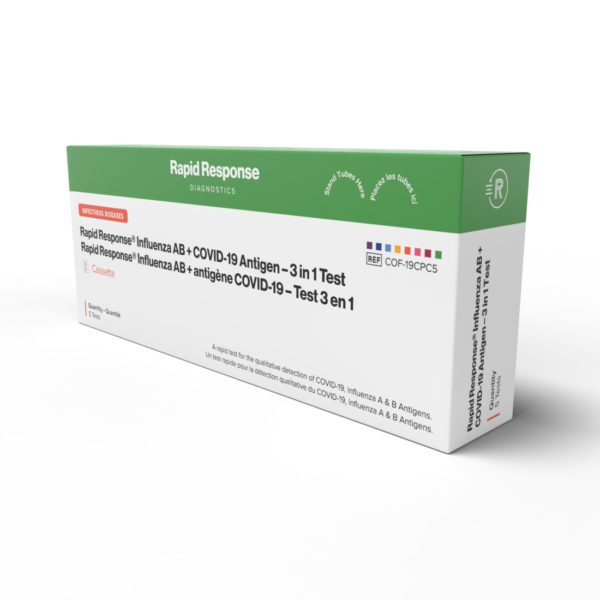Amid the ongoing global health concerns, it is essential to distinguish between different respiratory illnesses to ensure accurate diagnoses and appropriate treatment.
This blog aims to comprehensively understand the differences between coronavirus (COVID-19), influenza (flu), and the common cold. We will discuss the distinct symptoms, testing considerations, and treatment options for each condition.
Coronavirus vs. Flu vs. Cold
COVID-19
COVID-19 is a highly contagious respiratory disease caused by the SARS-CoV-2 virus. It emerged in 2019 and has since become a global health concern. COVID-19 can lead to severe illness, with serious complications including acute respiratory distress syndrome and multiple organ failure. It has significantly impacted public health systems and daily life worldwide.
Flu
Influenza, commonly known as the flu, is a viral infection caused by the influenza virus. It is a seasonal illness, and flu season affects millions yearly. The flu can range in severity from mild to severe, and it can lead to complications such as pneumonia. The flu vaccine is available to help prevent serious illness and reduce its spread.
Common Cold
The common cold is a mild viral infection primarily affecting the upper respiratory tract. Various viruses cause it, and most people experience it multiple times. The common cold is generally not severe, although it can cause discomfort and impact daily activities. Rest and self-care measures are commonly used for management.
Symptoms of Coronavirus, Cold, and Flu
COVID-19, the flu, and the common cold have similar symptoms but different manifestations. In this section, we will discuss the individual symptoms of each disease.
Coronavirus Symptoms
COVID-19 symptoms may vary but commonly include fever, cough, shortness of breath, fatigue, muscle or body aches, sore throat, and loss of taste or smell. In severe cases, individuals may experience difficulty breathing, persistent pain or pressure in the chest, confusion, or bluish lips or face.
Cold Symptoms
Common cold symptoms typically manifest as a runny nose or stuffy nose, sneezing, sore throat, cough, and mild fatigue. However, cold symptoms are usually milder than those of COVID-19 or the other flu viruses.
Flu Symptoms
Flu symptoms often resemble COVID-19 or allergy symptoms and can include fever, chills, headache, body aches, fatigue, and sometimes gastrointestinal issues like nausea or vomiting. It’s important to note that flu symptoms appear more suddenly and intensely than cold symptoms.
Coronavirus symptoms vs. common cold
Distinguishing common cold vs. covid symptoms can be challenging as some overlap exists. However, certain factors can help differentiate the two.
While a runny or stuffy nose and sore throat are common symptoms in both, COVID-19 is characterized by a persistent dry cough, shortness of breath, and a fever. In contrast, cold symptoms are generally milder and do not typically involve shortness of breath.
Moreover, coronavirus disease is more likely to develop severe symptoms, such as muscle aches, chest pain, and difficulty breathing.
Coronavirus symptoms vs flu
Flu and COVID-19 symptoms share several similarities, making accurate diagnosis crucial. Both illnesses can present with the same symptoms: fever, cough, fatigue, body aches, and sore throat.
However, COVID-19 may involve additional symptoms, such as loss of taste or smell, while the flu symptoms begin more suddenly and are more pronounced overall. Diagnostic testing is essential to confirm the specific infection.
If I have cold or flu symptoms, should I test for Covid?
If you experience cold or flu-like symptoms, it is advisable to consider COVID-19 testing , especially if you have been exposed to individuals with confirmed cases or have traveled to areas with active community transmission.
Testing helps rule out COVID-19 and ensures appropriate measures are taken to prevent further spread. You have two testing options: an antigen test or a PCR test. According to the Centers for Disease Control and Prevention, a PCR test is more accurate, but results take longer.
On the other hand, a positive antigen test is often reliable and should only take about 15-20 minutes to complete.
Is a COVID-19 cough different from a normal cough?
While a cough can be present in various respiratory illnesses, COVID-19 often appears as a persistent dry cough. This dry cough differentiates it from a regular cough associated with a common cold, often accompanied by phlegm or mucus production.
Can coronavirus start with having the flu or a cold?
COVID-19 can occur after experiencing the flu or a cold, as these illnesses weaken the immune system, making individuals more susceptible to other infections, including COVID.
However, it’s important to note that not all cases of flu or cold progress to COVID-19. Prompt diagnosis and appropriate preventive measures are crucial to minimize the risk.
How long do coronavirus symptoms take to appear?
The incubation period for COVID-19 can range from 2 to 14 days, with an average of 5 to 6 days. Symptoms begin to appear within this timeframe, but it’s important to remember that some individuals may remain asymptomatic despite being infected. This emphasizes the importance of adhering to preventive measures, even without symptoms.
Moreover, if symptoms persist or indicate severe disease, you should promptly seek medical care. This is especially true for patients with certain underlying medical conditions, such as chronic health conditions.
What are the treatment options for the common cold, mild cases of the flu, or COVID-19?
The treatment options for the common cold, mild cases of the the flu virus, or COVID-19 focus on alleviating symptoms, supporting the body’s immune response, and preventing the further spread of the viruses.
Treatment options for common cold
For the common cold, treatment primarily involves self-care measures. These include getting plenty of rest, staying hydrated, using over-the-counter medications for symptom relief (such as pain relievers, decongestants, or cough suppressants), and employing home remedies to relieve symptoms like nasal saline rinses or throat lozenges.
The common cold is typically self-limiting, and symptoms tend to resolve within a week or so.
Treatment options for flu
In the case of mild flu cases, similar self-care measures are recommended. Resting, staying hydrated, and using over-the-counter medications to alleviate symptoms like fever, body aches, or congestion can help.
Antiviral medications may be prescribed by a healthcare professional, particularly for high-risk individuals or those with severe symptoms. These antiviral drugs can help reduce the duration and severity of flu symptoms if taken within a specific timeframe after symptom onset.
Treatment options for COVID-19
Regarding COVID-19, mild cases often require supportive care. This includes resting, staying hydrated, and using over-the-counter medications to manage symptoms like fever or pain. Most individuals with mild symptoms of COVID-19 can recover at home.
However, it is important to consult a healthcare professional for guidance and monitoring, especially for individuals with underlying medical conditions or those at higher risk of severe illness. Antiviral drugs may be used in specific cases based on risk factors and the healthcare professional’s assessment.
When to get medical help
If you experience severe symptoms such as difficulty breathing, persistent chest pain or pressure, confusion, bluish lips or face, or any other concerning signs, seek medical help immediately. Additionally, individuals with underlying or chronic medical conditions, or those at higher risk should consult a healthcare professional for guidance and monitoring.























































